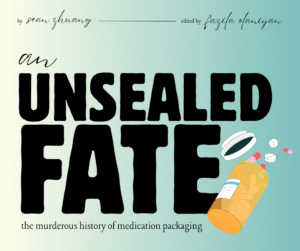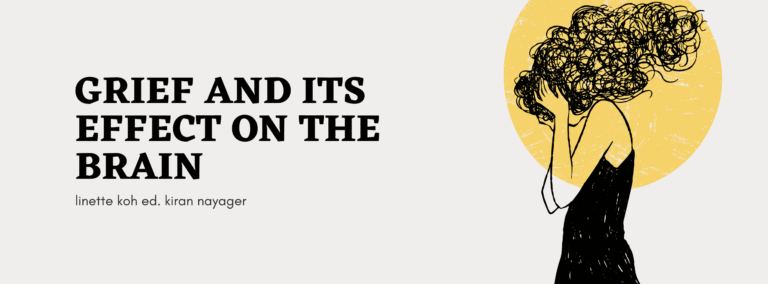
I.
‘Rhys?’
She looks up, startled.
‘It’s been a while, hasn’t it?’ he laughs, picking up her books when she knocks them over.
A while is an understatement, she decides. For years, she had him held in her mind in the same way one might hold onto a simple fact; a fact that one had no particular use for, but, when it resurfaced every now and then, gave inexplicable colour to everything around her.
‘I didn’t know you go here.’ he says, and sits down next to her, a bit too close. ‘What do you study?’
‘Classics.’
‘Oh wow.’
‘How’s Marie?’
‘She’s good. Moved to NYC last fall. You should call her sometime. She talked about you a lot in middle school.’ he says, distracted. He ends up rifling through her books and reads her translations. She watches on, flustered (for what is more naked than a re-imagining of someone else’s words?).
When he is done, he turns his attention to her. He quizzes her on herself and she tries her best to return the favor. He hangs on to every inflection and syllable and comma and silence and she is seen.
II.
She lies on the floor of Tracey’s bedroom eyes open but not seeing.
‘How do you know him again?’
‘You know Marie? It’s her brother.’
‘What a small world. Why don’t you message him?’
The thought hasn’t even crossed her mind. She doesn’t expect him to respond but he does and comes over.
It is late, by the time he gets up from her side to leave. And it is at that moment that she realises that she wants him to stay.
For when he looks at her, she is thirteen again, in Marie’s bedroom, watching him from the window as he runs out into the night, against the bass line of some song from some party somewhere neither near nor far — she is home.
III.
He invites her to a party a fortnight later. He parks his car in a back alley and they walk up to the house together. She trails behind and commits every washed-out sign, every lone white car in an empty lot, and every banana leaf that spilled over its fence to memory.
‘Come along now.’ he says, and guides her through the back door. He finds his friends in the kitchen and she stands next to him patiently as he talks to them.
He regards her for the first time mid-conversation.
‘—not that you would understand,’ he teases her. ‘It’s much harder than Classics, I’d imagine.’
She doesn’t know what to say and looks at him with uncertainty as his friends bring down the sky with their laughs.
He laughs at her too. ‘Relax, it was just a joke.’
‘Good one.’ one says.
Some slap him on the back.
She excuses herself.
‘Tell us, is she easy?’
‘—she’s totally asking for it.’
When she goes to hide in the restroom, she is cornered by a girl in blue, whose name she cannot remember (‘Oh my god, that’s who you’ve been talking to? Get out! I don’t know him well but he seems like such a friendly guy!’).
‘What was all that about?’ she asks, when he comes to find her later, once his friends have left.
‘What? I want a drink – let’s go.’
‘They shouldn’t say those things about me.’ she says, her eyes defiant.
‘Oh, nah, they’re just…you know…guys being guys.’ He grabs her wrist. ‘Come on. I want a drink.’
IV.
She notices one day that even when he laughs or smiles, his eyes remain sad and preoccupied. As though haunted by something he’d lost long ago.
She thinks he knows but hides it — he is an actor and his life is his stage.
As the days roll on and grow shorter, he forgets to pretend when they are alone. When the facade cracks, and the show is over, it feels like no one is home.
She catches it once, when he’s waiting for her to get ready. She puts down the brush and goes over to him and gives his shoulder a squeeze. He looks at her blankly, as though he had forgotten his lines.
‘Where have you gone?’ she thinks.
V.
She tugs at the sleeve of his shirt and he looks up.
‘Look! I got the Chancellor’s award this term.’ she says, happily, showing him the email on her phone. He takes a quick look and then hands it back.
‘Were they that desperate?’ he says and something within her cracks gently into two.
‘That’s pretty something I suppose.’ he says, averting his gaze. ‘I only got it in my second year. You must have gotten a pretty lax professor.’
VI.
‘Sorry that I got angry.’
He had yelled at her earlier that evening (she had asked him ‘how was your day?’).
‘No, that’s okay.’
He tells her about his dreams and hopes. His worries and nightmares. And in exchange, she tells him about hers.
He tells her about cold dinners, a mother whom he never seemed good enough for and the inevitable shattering of a dinner plate. And in exchange, she tells him about spilt wine, a marriage gone wrong and the sound of sirens as they neared.
And with each tentative baring of the soul, with each minute spent and given, with each rise and fall of their hearts, with each tear and laugh, with each moment of the mundane and the extraordinary, there lay hope that they might become whole again.
They talk into the early hours of the morning.
When it’s time to go, she curls into him. Neither speaks and they stay like that for a while.
VII.
‘That plate doesn’t go there.’ he says gently, and lifts the dish out of her hands. ‘Don’t worry. I can take care of it.’
VIII.
‘You always let him off so easy.’ Carrie sighs. ‘He doesn’t deserve you.’
‘Hurt people hurt others.’ She defends him.
‘I guess…but you got bashed as a kid and you don’t go around dragging people down.’
‘I’ve had therapy, that’s why. It’s fine, Carrie, really. Don’t worry. Let’s talk about something else.’
IX.
‘Can we talk?’
There is a broken dinner plate in the sink.
‘What do you want to talk about?’
‘I don’t know.’ she says. Silence. ‘Why is the plate broken?’
‘It’s not.’ He refuses to look at her.
‘I’m not judging you. I only want to help—’
‘I don’t know what you’re talking about. It was just an accident.’
X.
They soon fall into motion like actors in a play.
She sweeps the shards of plate and dinner up from the floor without a word.
He avoids her eyes and goes outside to cool off, in place of an apology.
XI.
He looks her up and down one morning.
‘Why don’t we do some exercise?’
Soon he says it everyday until her runners are worn, her debit card registers ‘insufficient funds’ for all the makeup she had started to buy, and she can no longer stand to look at herself in the mirror.
‘You’ve gotten a lot prettier, recently.’ he says and kisses her for a long time.
XII.
12:27 [sender]: where ru
3 missed calls from [sender] at 12:28.
12:31 [receiver]: I’m just with some friends 🙂
12:32 [sender]: who?
12:34 [receiver]: Just Tracey and Harry. Why?
Message read 12:35 by [sender].
XIII.
He doesn’t show up to date night for the third time.
She’s fed up and refuses to be the one to message first again. She’s had enough. She drains her account and checks into some motel in a part of town he doesn’t go to. She doesn’t want to see him.
So when he turns up in the motel lobby, she is suddenly afraid.
She swallows and goes up to him.
‘I didn’t know you were here. Just can’t get enough of me, can you?’ he teases. She says nothing. ‘Well, I’ve got nothing better to do right now. Let’s go get dinner.’
‘That’s so sweet. What a coincidence!’ Tracey gushes later.
She turns away, looking for some misplaced trinket that doesn’t exist.
‘Yeah.’
‘It’s normal for people to go to places where they’ll see someone they like.’ her therapist later suggests.
She agrees for the sake of agreeing but deep down she asks is it? In her case anyways. She then reasons that she’s just being silly and lets it go.
XIV.
‘Surely he’s not that bad. He doesn’t hit you though? I mean you’ve always been a bit sensitive. Maybe you’re just overreacting?’
She thinks about it and suddenly feels bad. He’s just insecure. She of all people should understand. She messages her other friends later and apologises for making such a fuss— she just has a propensity for drama. There’s nothing wrong with the two of them. Everything is fine. She’s just…crazy.
‘Are you sure?’ Carrie is doubtful. ‘His behavior would be hurtful to anyone, not just you.’
‘We knew you were being dramatic all along! So silly.’ Tracey laughs at her silliness to which she half-heartedly laughs at too.
XV.
‘We’ve been going out for so long, they just want to meet you—,’
‘Why are you being so difficult?’
His voice is icy and it stings. She looks at the ground.
‘Sorry. I… won’t bring it up again.’
Her voice is tiny and not her own.
His gaze softens. She feels it and finally meets it again.
‘You know that I just want what’s best for us. What’s best for you.’
He raises his arms slightly and she is embarrassed by how quickly she falls into them, but she holds on — tight.
She doesn’t think I love you but rather, please love me.
XVI.
‘Haha, were you jealous?’ she teases him slightly when she’s had too much to drink. ‘Don’t be.’ She kisses him.
He pushes her away.
‘Who said I’m jealous?’
‘You were glaring at Harry the whole time, silly.’
‘No I wasn’t. I don’t even remember doing that. What the hell are you talking about?’
Silence.
‘Why are you so crazy?’
Silence. Which makes him feel like he’s the bad guy. So he snaps.
‘ Why can’t you be more like Tracey.’ He sees the hurt on her face, and feels better. ‘Yeah. I didn’t even say that much to her and I already know she’s so much better than you. Prettier, funnier, smarter. I’d much rather be with her.’ He turns away. ‘I don’t want to see you right now. I think you should go.’
XVII.
‘He doesn’t mean it, trust me. ’ his best friend dismisses, when she brings it up. ‘He’s just not emotionally ready.’
She doesn’t know what to say. She feels foolish and lets the matter drop.
‘But if you ask me…I think you should find someone else.’
XVIII.
‘Jesus. He said that? He seemed like such a nice person though. Maybe you should cut him off.’ Tracey says.
XIX.
‘I’m sorry.’
‘No, it’s okay.’
‘I’m so horrible.’ he says, mournfully. And her heart breaks twice — once for herself and once for him.
‘I know you didn’t mean it.’
He doesn’t say anything and hugs her tight.
XX.
She opens the door for him when he comes back that night.
‘You’re bleeding.’ he says, and grabs her wrist to stop her from walking.
She looks down and sees the blood trickling from her Achilles and how she’s tracked blood all over the floor.
‘How did you hurt yourself?’ he asks, concerned.
‘I…I don’t know.’
He sits her at the kitchen table and kneels at her feet, about to bandage her up when he freezes.
His gaze hardens.
‘What’s wrong?’ she asks.
She follows his gaze and looks and sees it too —a shard of plate, in a puddle of her own blood.
XXI.
She finds a friend in the new exchange student, Jacob. She doesn’t see Tracey or Harry much anymore because of how riled up he gets about them (though she messages them on occasion when he isn’t around).
‘That’s not how a friend, let alone partner, should behave.’ Jacob says, when she tells him everything. ‘Fuck, I wouldn’t even do that to someone I hated.’
He thinks for a while.
‘I know you want to help him but sometimes, Rhys, you just have to leave people in the dust. You can’t help a person who doesn’t want to be helped. You can’t love a person who doesn’t love themselves.’
XXII.
She’s about to say hi to Jacob when she feels something on her and looks up and sees his eyes fixed on her. His face is blank but she knows, from the way that he’s holding his shoulders, that he is getting angry.
She excuses herself and walks away from Jacob (much to Jacob’s confusion) and towards him. He, pleased, doesn’t see the defeat in her step. He wraps an arm around her waist a bit too tightly and pulls her close as he brags about himself and laughs loudly at his own bad jokes.
She wishes she could both stay and leave.
‘If he’s as bad as you make him out to be, why stay?’
XXIII.
‘Who was that?’ he says when they get back.
‘Who?’ she tenses.
‘The guy from the party.’
‘Jacob? He’s just a friend.’
‘He’s obviously in love with you. Why are you so dense? Stay away from him. I don’t trust you to do the right thing.’
He throws his coat on the sofa and closes the bedroom door behind him.
XXIV.
‘This quality of work just isn’t acceptable, Rhys.’
She hangs her head in shame.
Her professor is taken aback and quickly tries to reassure her that as long as she takes a few remedial classes she will be fine.
XXV.
‘I know this is the tenth time, but I honestly think it’s just a me problem—,’
‘God, I can’t listen to this anymore.’ Carrie says.
XXVI.
Jacob sets down a cup of coffee in front of her after class one day before she can pretend that she didn’t see him. He looks at her sadly.
‘I’m worried about you, Rhys. You don’t seem like yourself anymore.’
When she has to go, he searches for the right words but there are none. Not really.
‘Take care, okay?’
XXVII.
He follows her around his place as she grabs her things.
‘I’m sorry.’ he says. ‘I know I haven’t treated you well. I’ll change. I swear. Don’t go, Rhys. You’re the only one who understands me. I have nobody.’
He starts to cry and tells her that he doesn’t want to live anymore.
She is horrified. She ends up pleading and in tears herself. Her bags and resolve lie forgotten in the corner as they cry into each other’s arms.
XXVIII.
Her doctor doesn’t say much as she speaks. As she speaks she feels she must sound crazy for her sentences are disjointed and jump over one another as she remembers and forgets and remembers again.
The headaches and the stomachaches and the feeling of drowning. The sleepless nights and the slipping grades and the thoughts that never stop running and worries that never go away. The panic attacks and self-doubt. How every time she met up with him, she’d have to write down everything that happened because she was never quite sure if they actually did happen. How she’d have to sleep for the whole day after and when she woke-up, it would be dark out and she couldn’t remember a thing until she read what she had written.
‘Have you heard about something called coercive control?’ her GP asks her.
She shakes her head.
‘Google it some more when you go home.’
So she does.
Two hours later her roommate finds her staring blankly at the same screen, as she wonders what on earth she has gotten herself into.
When she opens her referral letter to scan to the psychiatrist later, she laughs out loud but then shuts up when the shame hits.
‘I had the pleasure of seeing Rhys today. She presented with worsened anxiety and depression. She has been in an abusive relationship for 7 months which she is finding difficult to breakaway from. Thank you for your opinion and management.’
It sounds like a gross over-exaggeration. So dramatic.
The psychiatrist talks things through with her.
‘Look. I don’t think you need medication, Rhys. You’ve decided that you won’t leave him. At least not right now. It’s not much use for us to talk about all the things that he has done because regardless, my suggestion to you, which is to leave, will stay the same. So, why don’t we focus on forgiving yourself, and coming to peace with just letting things be for now?’
Her psychiatrist smiles sadly at her speechlessness.
‘Just remember, Rhys. Sometimes, control can look a lot like love.’
XXIX.
She flies home during the winter break. She spends a few nights at Dad’s and a few nights at Mum’s as she has always done.
She’s unnerved by how similar the two of them are — him and Dad — as she listens to Dad boast over dinner. Her stepmother glances at her untouched plate and asks what’s wrong.
‘Nothing.’ she replies with a careful smile.
Her father laughs and teases her for being ‘spoilt’ and ‘rude’ and continues to speak.
When dinner has finished, and they are clearing the table, she flinches when the dinner plates clatter into the sink.
XXX.
‘Mum?’
She steps inside and finds her mother sitting in silence, by the dining table, absent-mindedly looking out the window, with empty bottles by her feet.
‘Hello dear.’
‘Mum, the doctor said you can’t drink anymore, remember?’ she says, as patiently as she can, as she puts the glasses in the sink and the bottles in the trash.
‘I haven’t had that much.’
‘Right. Well let’s try not to have any at all, okay?’
‘Okay, Rhys. You’re the boss. Anyways, don’t worry about your old mother — I’m fine. How are you? Any boys you’re seeing?’
‘Same old. I got the Chancellor’s award this term, though.’
‘Oh how wonderful! I’m so proud of you.’
‘Thanks, Mum. But no. No boys.’
‘I want grandkids. Preferably while I’m still alive.’ her mother laughs. ‘I’m kidding. Of course. You’ll find someone one day, when the time is right.’ Her mother pauses and thinks for a while.
‘But someone who treats you well, okay?’
When the bedroom door is safely closed behind her, those seven words are all it takes. And the tears just run free.
XXXI.
She had once thought of her mother as weak for staying with her father for as long as she did. A coward. Why couldn’t she just leave? But she gets it now — when she looks into her mother’s eyes now, she no longer sees a stranger but she sees herself.
XXXII.
On her way back, she looks out the window after take-off as the city turns to stars. She thinks of how angry she had been at her mother for staying. And how because her mother had stayed, she now couldn’t bring herself to leave.
She thinks of the children that she wants to have one day (she’d want two of them – a boy and a girl) and how, if it were them, she would want them to leave.
And, for the first time, she knows without question what must be done.
XXXIII.
She leaves him on a Sunday.
The last of the winter rain pours.
It’s a good day. He tells her about his week, his plans to travel Europe someday and how the new intern was a total stick-in-the-mud. He even asks her one or two questions about how she’s doing which makes her smile, which then makes her sad that it made her smile.
He glances at her when she takes too long to reply.
‘Are you okay?’
She smiles sadly. If only he knew. It’s too little and all too late.
‘Yeah. Just thinking.’
When he’s finished with what he’s wanted to say and wants to go, she kisses him goodbye without him probing and lingers for a long time. He’s slightly confused but shrugs it off and kisses her back.
When he gets up to leave, she lets him go.
XXXIV.
The days roll on. Slowly.
It is not a broken heart but a broken spirit that hurts the most, she decides.
XXXV.
‘You’ll love again.’ Carrie says, and gives her a big hug.
She nods and smiles, but wonders if she’d have it within her to do so.
She reads all the letters she had written but never sent him and feels sad for the hopeful girl that she had once been. The girl who never wanted anything except to love.
She misses him.
She wishes things were different.
She’d like to think there existed some world out there where dinner plates weren’t shattered. Where children were always good enough for their mothers, just as they were. Where mothers were good enough for their own mother. Where he didn’t hate himself so much. Where he would never do the things that he did. Where she would never stay for as long as she did. Where she would never have a reason to have to leave.
Maybe, in such a world, they’d cook dinner together, and then eat and laugh and talk, before they wash-up and put away the dinner plates back into their designated dinner-plate drawers — together. Or maybe they’d be good friends and go travelling to Europe or wherever they wanted and they’d stumble around, lost in the world, but always find each other in the end. Or maybe she wouldn’t have a best friend called Marie in middle school and they’d be perfect strangers. Or maybe she would never meet him twice and he would have remained distant in her past.
All but a fond memory.
A simple fact.













This is such a beautifully written and *important* short story that perfectly captures how people suffering from coercive control are plagued with relentless over-thinking and self-doubt even the evidence stacks up that their lives are clearly falling apart because of the abuse they endure. Additionally, readers are made to realise how we unintentionally endorse abusive relationships by refusing to accept uncomfortable truths (‘maybe you’re overreacting?), giving unsolicited advice or more provocatively, refusing to get help for our own trauma. The text makes sure to point out that perpetrators are not one-dimensional villains, with both the abuser and victim/survivor unwittingly repeating the patterns of their parents’ coercive, controlling relationships. However, the author draws a clear distinction between those who perpetuate abusive relationships and those who choose to break the cycle. In short, read this story with an open mind, and maybe learn to identify the toxic behaviour around you – and maybe even your own.